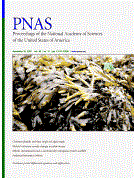Laboratory mice exposed to air near integrated steel mills suffer elevated levels of genetic damage, says a newly published report in the Proceedings of the (U.S.) National Academy of Sciences.
The report, by researchers at McMaster University and Health Canada's environmental and occupational toxicology division, found that offspring of mice raised one kilometre from the Dofasco and Stelco mills in Hamilton, Ontario had between 1.5 and two times the genetic mutations of identical mice kept at a llama farm 30 kilometres away.
The "steel" mice also had fewer offspring.
Earlier research from McMaster found higher levels of genetic mutations in herring gulls nesting near Algoma Steel in the Sault, and in three other steel towns.
"Our results indicate that human and wildlife populations in proximity to integrated steel mills may be at risk of developing germline mutations more frequently because of the inhalation of airborne chemical mutagens," the researchers report.
Learn more
To access the just-published report, please click here.
To read international media coverage of the discovery, click on the links below:
Globe and Mail Pittsburgh Post-Gazette Associated Press Reuters News Agency Scientific American United Press International
